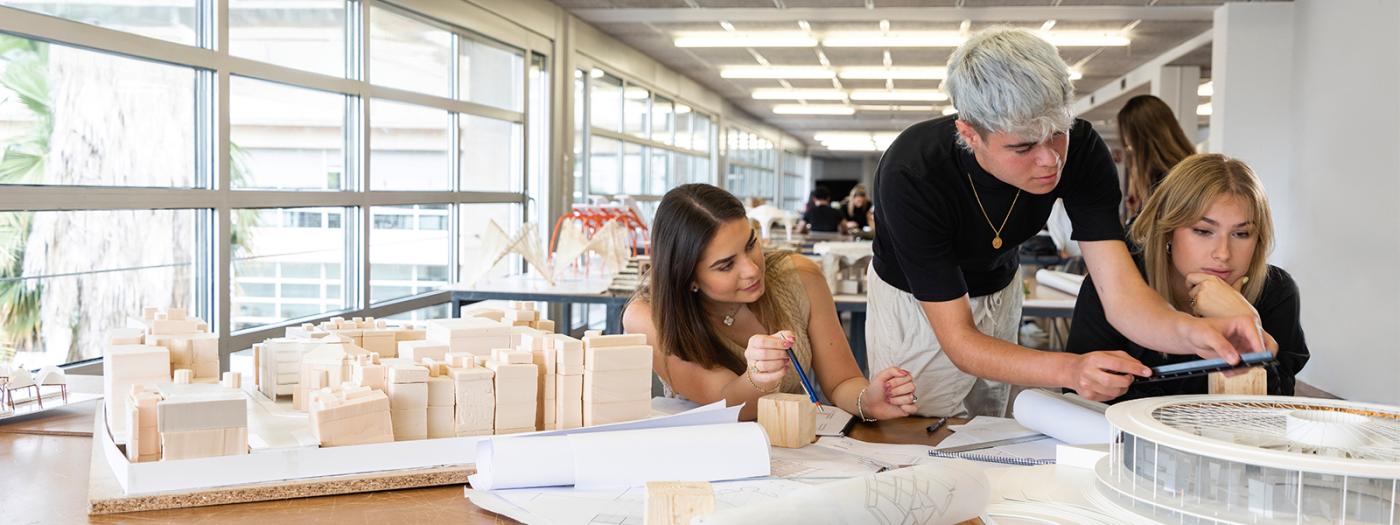1.1. Code: YY065
1.2. Subject category: Optative
1.3. Duration:
1.4. Credits ECTS: 3
1.5. Head teacher:
1.6. Language: Catalan - Spanish English
This elective course invites students to explore the intersections of urbanism, society, and the environment through four critical lenses: urban resilience, environmental justice, democracy and spatial agency, and inclusivity and participation. Structured in thematic blocks, the course blends theory and practice, encouraging students to critically engage with contemporary urban challenges and the role of architecture in shaping equitable futures.
The course begins with an exploration of urban resilience, where students will analyze a range of hazards?including floods, droughts, heat waves, air pollution, food insecurity, and both natural and human-made disasters?that threaten urban well-being. Case studies from around the world will serve as the basis for examining how cities adapt to these challenges and what architectural strategies support resilience.
Next, the focus shifts to environmental justice, where students will critically assess how the adaptation and mitigation measures studied in the first block can produce unequal outcomes. Urban greening projects implemented under the banners of climate adaptation and public health will be examined through a critical lens, questioning who benefits from these interventions and who may be excluded or displaced as a result.
In the third block, the course addresses inclusivity and participation by unpacking the power dynamics behind urban transformations. Students will explore inclusive governance models that actively involve marginalized or underrepresented communities in decision-making processes, learning how to design participatory tools that ensure diverse voices are heard and valued in shaping urban futures.
Finally, the course turns to democracy and spatial agency, introducing students to cartographic and interpretative mapping tools that reveal hidden urban realities. These tools will be used to visualize and reinterpret the socio-spatial dimensions of the issues studied throughout the course, positioning maps as instruments of empowerment and enabling new forms of agency in urban transformation.
By the end of the course, students will have cultivated a deeper understanding of architecture?s potential as a tool for advocacy, empowerment, and transformation in the urban realm.
Through a dynamic mix of readings, debates, interpretative mapping, role-playing, and creative exhibitions, students will develop tools to identify, analyze, and visualize challenges within complex urban systems. Emphasis is placed on transversal thinking, collaborative learning, and a deep understanding of spatial (in)justices in response to diverse social and ecological realities.
Exams
Internal / external reports
Exercices, problems, internships
Projects
Group / individual presentations
Self-assessment
Class participation / monitoring
Project corrections: tutorials
Jury corrections
